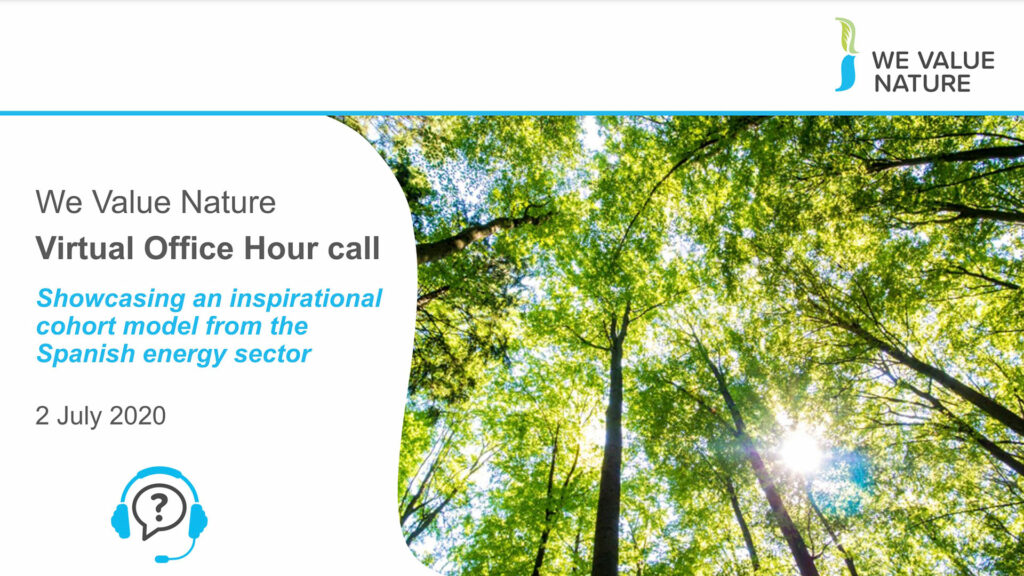At the beginning of July, the Sector Group on Natural Capital and Energy participated in the monthly Office Hour of the EU campaign We Value Nature as a benchmark for sectoral work in this field.
Representatives from the energy companies in the working group (Cepsa, EDP España, Enagás, Endesa, Red Eléctrica Group, Iberdrola, Naturgy, and Repsol) and the coordinating team (Azentúa and Ecoacsa) shared their collaborative experience with participants in the virtual session their collaborative experience with participants in the virtual session since the establishment of the working group driven by Ecoacsa and Azentúa. They discussed the learnings, opportunities, results, successes, and benefits achieved during months of joint work to advance the application of natural capital approaches.
Main Reasons for Launching this Collaborative Experience Initiated in Late 2018:
- The identified interest among the Spanish energy sector to learn and advance in the application of natural capital approaches as a change instrument to improve the relationship between the sector and nature and enable a greater contribution to nature conservation.
- Providing useful tools to help Spanish energy companies make better decisions that can affect the health and status of natural capital.
- Building a science-based consensus on which natural capital assets, ecosystem services, and dependencies are most relevant for energy companies to articulate a common terminology and measurement methodology to incorporate natural capital into the Spanish energy industry.
Emilio Tejedor, Environment Director at Iberdrola, emphasized that this experience has allowed them to “practically apply different tools and methods to achieve qualitative results working at two scales, by technology and at the sector level.” He added, “It has also been very useful to agree on a harmonized terminology valid for application by all companies, as well as to establish a common framework to identify, measure, and value the impacts and dependencies (direct and indirect, positive and negative) of natural capital.”
Lucía Santolaria from the Reporting, Risk & Compliance department of Cepsa noted that working with other members of the working group to share problems and experiences has led to the creation of a supportive and mutually enriching environment, where trust and the interest in learning from each other prevailed.
“Some of the barriers identified throughout this learning have been the significant differences between the activities of ‘electricity’ and ‘oil and gas’; and realizing that identifying, measuring, and valuing ecosystem services and natural capital assets is very complicated, requiring time, resources, and significant data collection.” She also mentioned that “since the quantity of ecosystem services often depends heavily on their local and spatial context, this makes it challenging to generalize their materiality. Sometimes, the results are context-specific, complicating consistency and comparability between companies.”
In conclusion, Santolaria highlighted that it has been quite useful to realize that “addressing a natural capital assessment helps not only to communicate negative impacts, which companies typically focus on, but also to report and communicate positive ones.”

